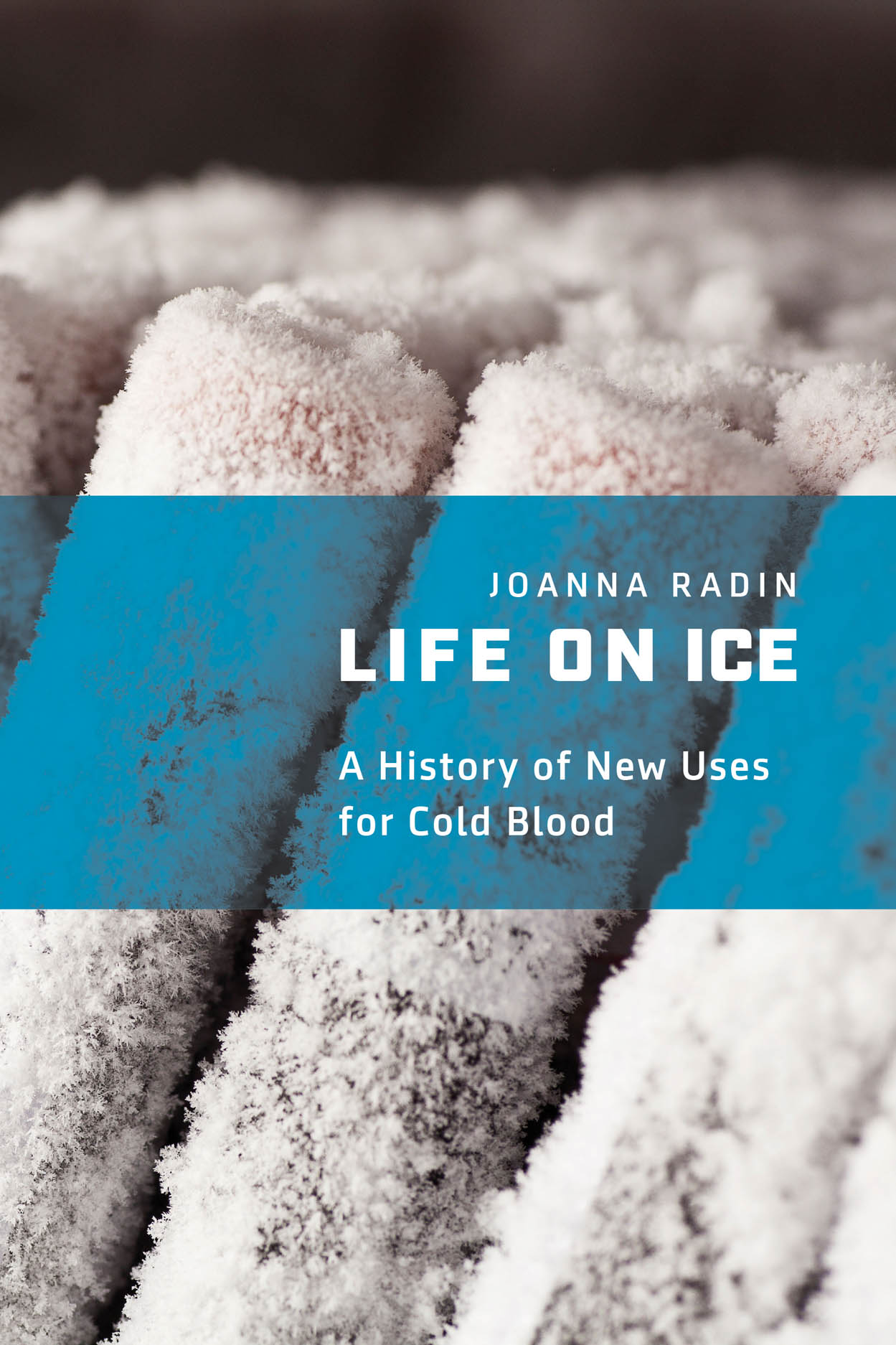I am a historian of biomedical futures. I care about how people have imagined science, technology and medicine will change their lives. This has led me to think and write about global histories of biology, ecology, medicine, technology, and anthropology since 1945; history and anthropology of life and death; biomedical technology and computing; feminist, Indigenous, and queer STS; and science fiction.
All of these themes are present in my current book project, which reconsiders the history of science through the career of Michael Crichton.
At Yale University, I am Associate Professor of History of Medicine and a core member of the Program in History of Science and Medicine. I am also affiliated with the Departments of History, Anthropology and American Studies as well as the Programs in Ethnicity, Race and Migration and Religion and Modernity. For more details, see my CV.
I am co-editor of the Science as Culture series at University of Chicago Press.
Contact me at joanna.radin@yale.edu or @joannaradin on Twitter.
Books
After the atomic bombing at the end of World War II, anxieties about survival in the nuclear age led scientists to begin stockpiling and freezing hundreds of thousands of blood samples from Indigenous communities around the world. These samples were believed to embody potentially invaluable biological information about genetic ancestry, evolution, microbes, and much more. Today, they persist in freezers as part of a global tissue-based infrastructure. In Life on Ice (Chicago 2017), I examine how and why these frozen blood samples shaped the practice known as biobanking.
In Cryopolitics (MIT 2017), co-edited with Emma Kowal, experts from anthropology, history of science, environmental humanities, and Indigenous studies examine how and why low temperatures have been harnessed to defer individual death through freezing whole human bodies; to defer nonhuman species death by freezing tissue from endangered animals; to defer racial death by preserving biospecimens from Indigenous people; and to defer large-scale human death through pandemic preparedness. The cryopolitical lens, emphasizing the roles of temperature and time, provokes new and important questions about living and dying in the twenty-first century.
Research Articles
- With Ricardo Ventura Santos and Carlos E.A. Coimbra Jr. “‘Why Did They Die?’ Biomedical Narratives of Epidemics and Mortality Among Amazonian Indigenous Populations in Sociohistorical and Anthropological Contexts,” Current Anthropology, 2020
- “The Speculative Present: How Michael Crichton Colonized the Future of Science and Technology,” Osiris, 2019
- “Alternative Facts and States of Fear: Reality and STS in an Age of Climate Fictions,” Minerva, 2019
- With Cynthia Rudin, “Why Are We Using Black Box Models in AI When We Don’t Need To? A Lesson From An Explainable AI Competition,” Harvard Data Science Review, 2019
- “Ethics in Human Biology: A Historical Perspective,” Annual Review of Anthropology, 2018
- “Digital Natives: How Medical and Indigenous Histories Matter for Big Data,” Osiris, 2017
- With Susan Lindee, “Patrons of the Human Experience: A History of the Wenner-Gren Foundation for Anthropological Research, 1941–2016,” Current Anthropology, 2016
- With Emma Kowal, “Indigenous Blood and Ethical Regimes in the United States and Australia Since the 1960s,” American Ethnologist, 2015
- “Planned Hindsight: The Vital Valuations of Frozen Tissue at the Zoo and Natural History Museum,” Journal of Cultural Economy, 2015
- “Unfolding Epidemiological Stories: How the WHO Made Frozen Blood into a Flexible Resource for the Future,” Studies in History and Philosophy of Science, Part C, 2014
- “Collecting Human Subjects,” Curator, 2014.
- “Latent Life: Concepts and Practices of Human Tissue Preservation in the International Biological Program,” Social Studies of Science, 2013
- With Emma Kowal and Jenny Reardon, “Indigenous Body Parts, Mutating Temporalities, and the Half-Lives of Postcolonial Technoscience,” Social Studies of Science, 2013
- With Sarah Kaplan, “Bounding an Emerging Technology: Deconstructing the Drexler-Smalley Debate about Nanotechnology,” Social Studies of Science, 2011
Essays and Criticism
- “The Secret Weapon for Distributing a Potential covid-19 Vaccine,” Washington Post, 2020
- “Tech-Master Disaster: Gene Town,” Radio Open Source, 2019
- “Congress Grilled Mark Zuckerberg, but Lawmakers Really Should Look in the Mirror,” Washington Post, 2018
- “Caring for Capitalism,” review of The Bleeding Edge by Kirby Dick and Amy Ziering, Los Angeles Review of Books, 2018
- “Where Nothing Can Possibly Go ‘Worng’: Michael Crichton and the Gender of the Glitch,” The New Inquiry, 2016
- “Never Ending Stories: Narrating Frozen Evidence of Infectious Epidemics Past and Future,” Somatosphere, 2016
- “Histories of the Future,” contributor and co-editor with Erika Milam and Fred Gibbs, 2015
- “A Remembrance of People Lost: Between Epidemiology and History,” Somatosphere book forum featuring Christian McMillen’s Discovering TB: A Global History, 1900 to the Present, 2015
- “Frozen in the Hot Zone,” Limn, 2015
- With Emma Kowal, “Cryopolitics,” Multispecies Salon, 2015
- “Rot,” Multispecies Salon, 2015
- “Serum as Sentinel: How Cold Blood Became a Resource for Population Health,” Limn, 2013
- “Atomic Ironies,” review of Life Atomic by Angela Creager, Science, 2013
- Review of Biomedical Computing by Joseph November, IEEE Annals of the History of Computing, 2013
- “The ‘How’ of WHO,” review of The World Health Organization Between North and South by Nitsan Chorev, H-Diplo, 2012
- “Studying Mandela’s Children: Human Biology in Post-Apartheid South Africa,” an interview with Noel Cameron, Current Anthropology, 2012

